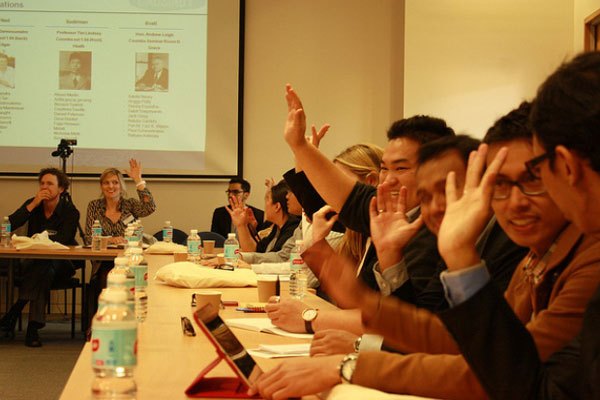Indonesia and Australia: Improving perceptions and creating opportunities
By Agung Wasono
In 1994, Australian Prime Minister Paul Keating once said, during his visit to Jakarta, “No country is more important to Australia than Indonesia. If we fail to get this relationship right, and nurture and develop it, the whole web of our foreign relations is incomplete.”
Last month, I had the privilege of interviewing more than 50 candidates – shortlisted from hundreds of applicants – for CAUSINDY 2017.
I was amazed by the passion of the selected candidates, as they all want to strengthen the bilateral relationship between Indonesia and Australia.

When I asked them to elaborate more about current situation of bilateral relationship, most of them argued that public perception plays important role in shaping relationship between the two countries.
They also argued that getting to know each other better as a first step is crucial to strengthening business-to-business and people-to-people relationship, which will in turn, boost culture, education, security, and economic cooperation.
The state of the relationship
Despite distracting incidents, such as the recent suspension of military cooperation earlier this year, it can be said that the relationship between Australia and Indonesia is somewhat on the right track. The 2017 Lowy Institute Poll reveals that 52 per cent of Australians trust in Indonesia as one of the global powers compared with the United States (20 per cent) and Russia (38 per cent).
However, only 27 per cent of Australians agree overall that Indonesia is a democracy. One explanation for this may be Australians’ continuing lack of awareness about Indonesia. Notwithstanding this lack of familiarity, a large majority of Australians (91 per cent) said that Australia’s relationship with Indonesia is important.
Current data show that Indonesians attitude to Australia is very good. A comprehensive Australia-Indonesia Perception Report 2016 by The Australia-Indonesia Centre found that 87 per cent of Indonesians had a favourable perception of Australia, including 22 per cent very favourable. On the other hand, only 43 per cent of Australians had a favourable impression of Indonesia including 6 per cent very favourable.
H.E Paul Grigson, Australia’s Ambassador to Indonesia gives the easiest example of a huge impact from the cooperation between two countries which people sometimes do not realise: Indomie. Every time we eat Indomie we are eating Australian product because the biggest Australian export to Indonesia is wheat, $1.2billion a year worth, not cattle.
The recent data also show that around 8,500 Indonesians study in Australian universities each year – this makes up almost a quarter of all Indonesians studying overseas. There are also 50 per cent more Indonesians studying in Australia than in all of Europe combined.
It is also notable that Indonesian visitors spend more days in Australia staying on average for 16.3 days at a time compared to Australian visitors to Indonesia who stay for an average 9.2 days. The number of Indonesians visiting Australia in 2016 was about 156,000 and these visitors generated more than AU$600 million for Australia’s economy. However, the number is quite low compared to 1,128,000 Australians visitors to Indonesia in the same year.
Creating opportunities and better perceptions together
Some argue that very strict Australian visa policy contributed to a low number of Indonesian visitors. However, Australian Embassy in Indonesia has approved more than 95 per cent of visa applications for Indonesians every year. Also, the cost of Indonesians applying for visitor visa to Australia is at AUD163, lower than the cost of applications to other major developed countries, such as the United Kingdom (AUD167), New Zealand (AUD193), and the United States (AUD220). In addition, Australia has issued three-year multiple entry visas for Indonesian visitors since last year. This policy, therefore, signals Australia’s recognition of Indonesia as its closest and most important neighbor for tourism and business.
As next steps, spreading more good news from Indonesia to Australians and from Australia to Indonesians should be on the agenda of both countries. Australians’ view of Indonesia is often swayed by what is reported in the media, which usually taints Indonesia as one of sources of terrorism and radical Islamists. These stories often exaggerate the real situation and puts a stigma on Indonesia among Australians – we need to address and fix this problem.
Another intervention that we can make is through education. Basic education about Australia should be improved in Indonesian schools and basic education about Indonesia should also be improved in Australian schools.
If both countries can work together on this, Australia and Indonesia relations will be stronger in the future.
Agung is CAUSINDY Alumni 2015. He is currently working for Australian Embassy in Jakarta as Senior Program Manager Quality and Risk Unit. The opinions expressed in this article are the author’s own and do not reflect the view of the Australian Embassy in Jakarta or the Australian Government.
